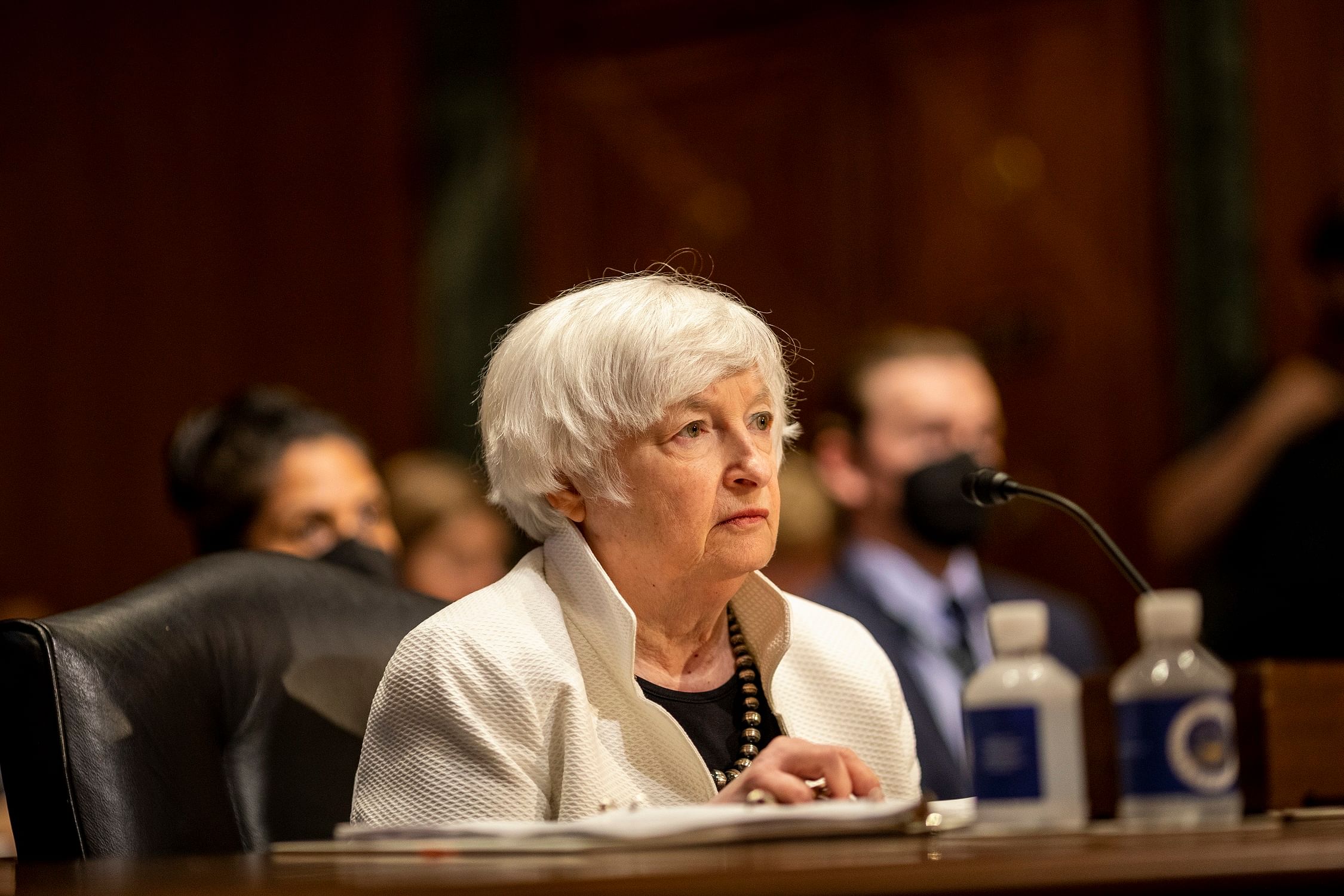Yellen says US inflation 'unacceptable' but likely to stay high
Sign up now: Get ST's newsletters delivered to your inbox

Produce for sale at a grocery store in Annapolis, Maryland.
PHOTO: AFP
Follow topic:
WASHINGTON (REUTERS) - The United States faces "unacceptable levels of inflation" Treasury Secretary Janet Yellen told senators on Tuesday (June 7), adding that it was likely to remain high but that she hoped price increases would soon moderate.
At a Senate Finance Committee hearing, Yellen rejected Republican assertions that the highest inflation in 40 years was caused by Democratic President Joe Biden's US$1.9 trillion (S$2.6 trillion) American Rescue Plan (ARP) Covid-19 spending legislation last year.
"We're seeing high inflation in almost all of the developed countries around the world. And they have very different fiscal policies," Yellen said. "So it can't be the case that the bulk of the inflation that we're experiencing reflects the impact of the ARP."
Yellen repeated her views that inflation was being fuelled by supply-demand mismatches, including excessive demand for goods over services during the pandemic and severe supply chain disruptions. High energy and food prices caused by Russia's invasion of Ukraine also have pushed inflation higher, she said.
"I do expect inflation to remain high although I very much hope that it will be coming down," she said.
She insisted that addressing inflation was Biden's top priority and said that elements of the president's proposed social and climate legislation could help lower costs for Americans, including for prescription drugs and clean energy technologies.
'Transitory' wrong word
Yellen has come under fire from Republicans after admitting she was "wrong" last year in forecasting that inflation would be transitory and quickly subside. She will face more tough questions on the issue in a House Ways and Means Committee hearing on Wednesday.
Yellen added that both she and Federal Reserve chairman Jerome Powell both "probably could have used a better term than transitory" in describing inflation that they thought would fade quickly.
"When I said that inflation would be transitory, what I was not anticipating was a scenario in which we would end up contending with multiple variants of Covid that would be scrambling our economy and global supply chains, and I was not envisioning impacts on food and energy prices we've seen from Russia's invasion of Ukraine," Yellen said.
US Consumer Price Index inflation has been tracking above 8 per cent. Another metric, the Personal Consumption Expenditures price index, which the Fed monitors for its 2 per cent target, measured inflation at 6.3 per cent in April. Excluding volatile food and energy costs, the PCE fell to 4.9 per cent that month.
"To dampen inflationary pressures without undermining the strength of the labor market, an appropriate budgetary stance is needed to complement monetary policy actions by the Federal Reserve," Yellen said in prepared remarks.
Her testimony came as the World Bank on Tuesday warned of a heightened risk of "stagflation" - the 1970s mix of feeble growth and high inflation - returning as it slashed its global growth forecast by nearly a third to 2.9 per cent for 2022.

US Treasury Secretary Janet Yellen testifies before the Senate Finance Committee in Washington on June 7, 2022.
PHOTO: NYTIMES
World Bank president David Malpass said the "huge expansion" of government spending by advanced economies during the pandemic had fuelled demand and played a role in stoking inflation.
The Biden administration is still pushing for a scaled-back version of its stalled climate and social spending agenda, which would offer tax credits for clean energy technologies and reform prescription drug pricing.
Oil price pressures
Yellen said that even though the United States is a major energy producer and exporter it was "virtually impossible" for the US to insulate itself from oil market price shocks and needed to press ahead with a transition to renewable energy sources.
Regarding efforts to increase economic pressure on Russia, she said the US was "extremely active" in discussing with European countries ways to limit Moscow's oil revenues.
Yellen also said she was "keenly focused" on proceeding with a global tax reform deal among 137 countries, including a 15 per cent global minimum tax.
"I am hopeful that Congress will also implement this global minimum tax as part of its legislative agenda."

